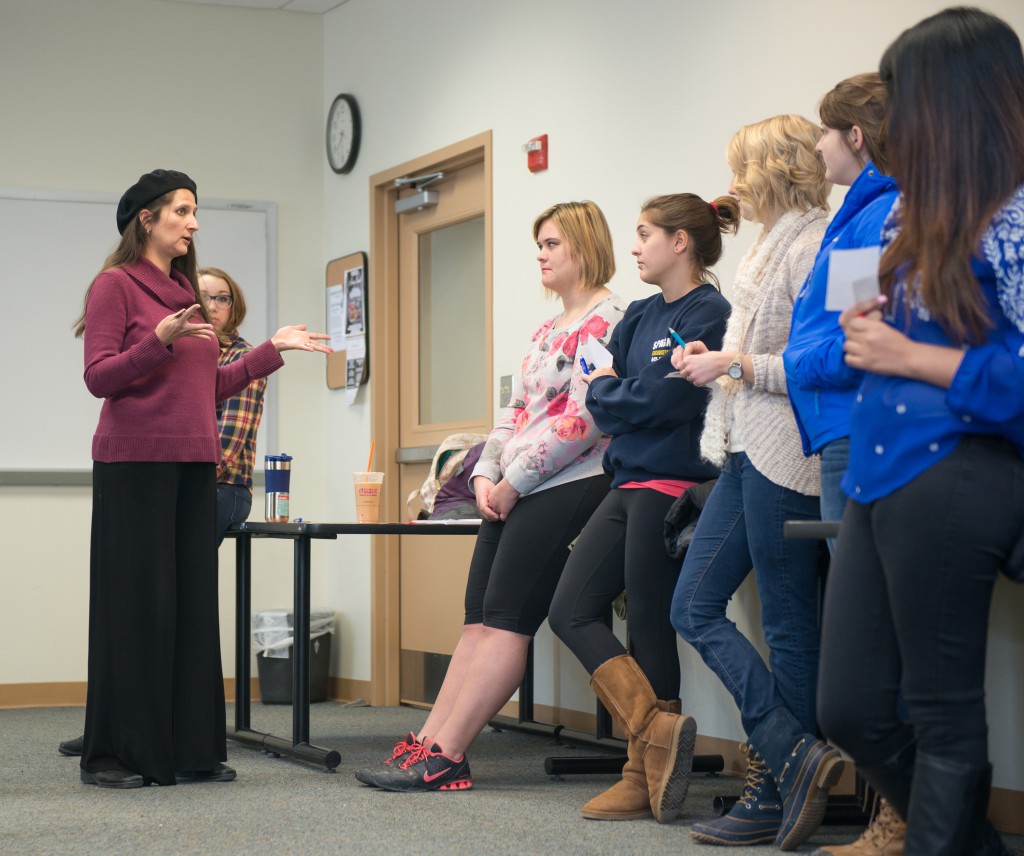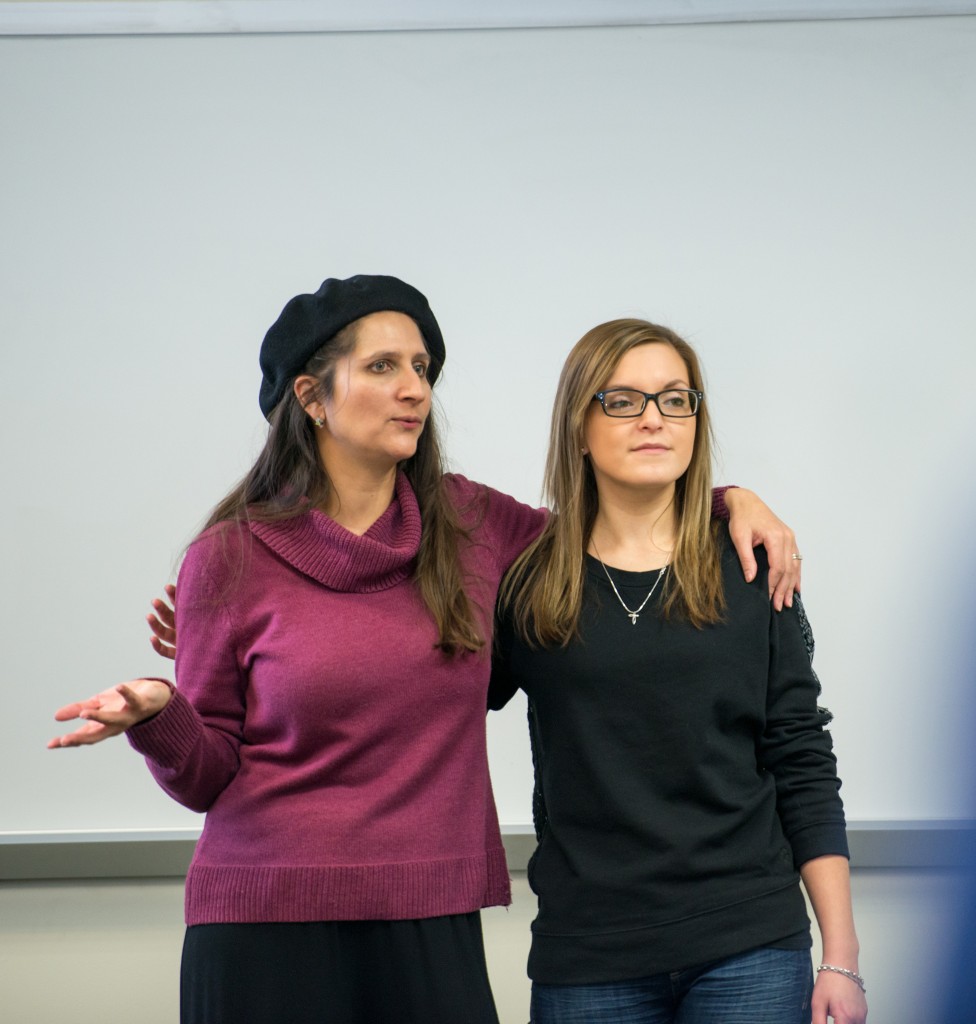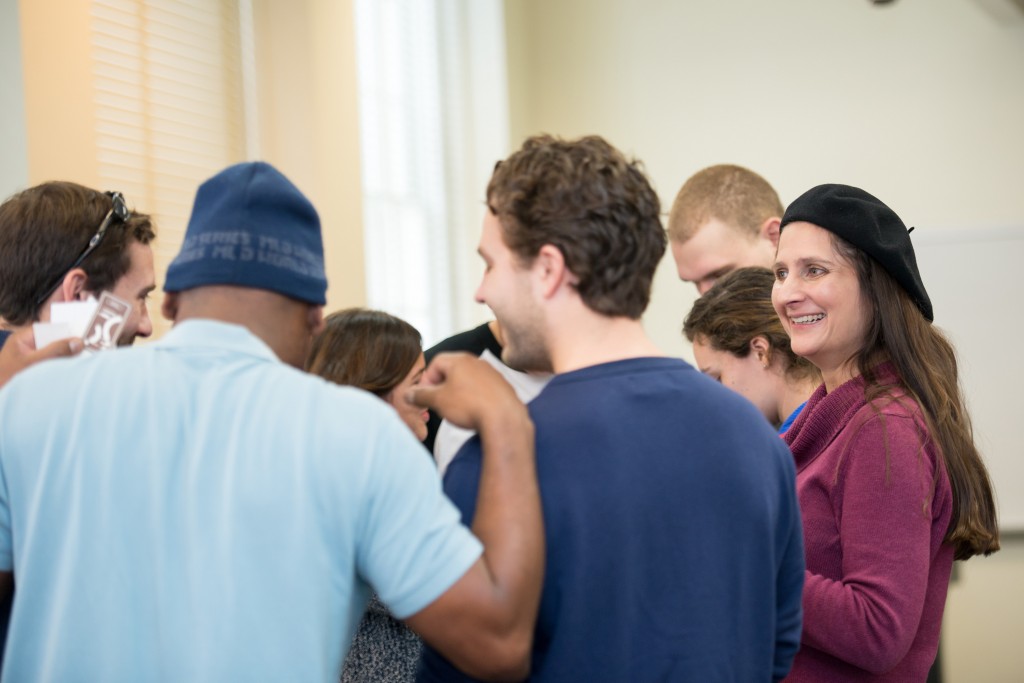
Davina Vora
Associate Professor, School of Business
Faculty member since: Fall 2007
Courses: International Business, International Management, Global Business (MBA)

What courses do you enjoy teaching?
All of my classes are really fun. We do lots of interactive exercises. For international business, we do a cultural simulation where students are grouped into different cultures and interact with each other. For international management, we do a lot of role playing simulations, which is what I really like to do. For global business, we do exercises where they use Legos, paper tools, little pieces of wood, and Play-Doh. It’s called rich methods, and it’s become very popular with big Fortune 500 corporations like Disney and 3M to help with their marketing and overarching strategies. Then we do a stakeholder exercise, where each of them has a different perspective – one is local people, one is the corporation, etc. – and they have an ethical issue they try to resolve in small groups.
How do business students benefit from tactile learning and role play?
It helps to embrace creativity and think outside the box. You learn to interact with people who have very different perspectives from your own, because you have to. I think that’s fairly typical of what one would encounter in a variety of fields, not just business. It helps them get outside of their comfort zones and see things from multiple views, as well as gain the skills necessary to do well in a global business environment. At least that’s my hope.
What do you like most about working with students?
It’s exciting to see that what you hoped would work, does work – or when they’re interacting in groups, to see how they grow. For international management, all of them need to come up with a plan on how to improve their intercultural competencies. Some of them are afraid of new things, so maybe they can attend new events on campus. Maybe they’re not fond of the outdoors, so they go hiking. I had one student who was incredibly quiet, at the end she was very talkative in class, became the leader of two student organizations, and did a lot of public speaking. It can make a difference for some people.
 When did you become interested in international business?
When did you become interested in international business?
My mom is from Germany, my dad is from India, and most of our relatives were abroad. Dad taught international business and strategy, and mom taught intercultural communication. They were both Fulbright scholars and we traveled the world. We spent a year in Taiwan, three summers in Germany, multiple summers and quite a few winters in India. I always knew I wanted to do something international. After college, I studied political science and German at Wellesley College, and then worked at Coopers & Lybrand Consulting (now PricewaterhouseCoopers). There were a lot of international teams in my division, and I realized the business context was a fun, practical way to see how people can work well together or not.
It’s exciting to see that what you hoped would work, does work – or when they’re interacting in groups, to see how they grow.
Why is it important to think globally?
When I was growing up, it was unusual for anyone to go abroad. Maybe they went to Europe, or culturally similar places. Now you hear of a lot more people going not just to Europe, but also South America or Asia, somewhere off the beaten track. I grew up in Minnesota, which now has a huge Somali population. You see a lot of cultural and religious diversity in small towns. From a domestic business standpoint, you’re going to end up getting some supplies from another country. With the Internet, a lot of firms are selling globally. It’s becoming more common to have subsidiaries in different countries. I recommend all of our students study abroad. There are a number of people who haven’t, and once they do, they realize how important it is.

Where should business students study abroad?
You should learn Mandarin and go to China. India is another big emerging market. China has surpassed Japan already, and it seems likely that they could surpass the U.S., so it would make sense to spend some time and recognize how business works over there. Not that you can forget the E.U. or Japan. But China and India are the two big emerging markets.
What do you like about New Paltz?
I like that it’s so close to New York City, so we can see a Broadway show and get good chocolate. I like that it’s small enough to walk everywhere. You can walk into town and go to restaurants, go shopping, and wander around. It’s easy to go hiking; it’s a very natural environment.
We all get along so well in the School of Business. I’ve never seen such a functioning department. It’s very positive and welcoming. We have an open-door policy, and there’s a lot of facilitation of different ideas. The students tend to be strong and interested; they bring up good questions. I’ve been very impressed with my classes. And I like that the college is very diverse. You have people from a variety of races, ethnicities, and countries. It gives a very broad spectrum of perspectives.


